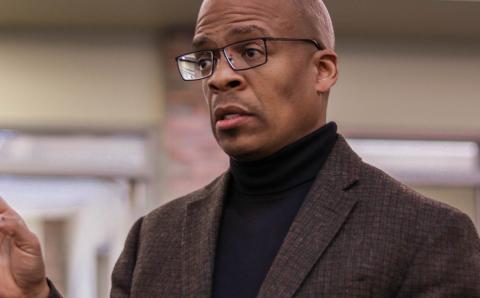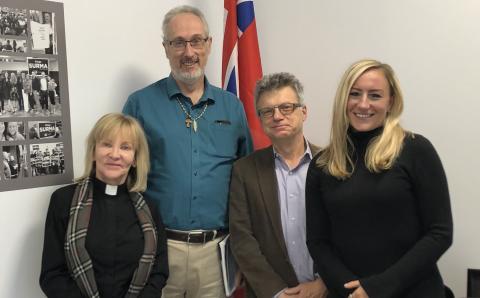Are commissioned pastors allowed to perform the same tasks as ministers, such as administering the sacraments and performing weddings and funerals?
The Church Order assigns to ministers of the Word the tasks of preaching, administering the sacraments, church education, and equipping members for Christian service. Ministers are also, along with elders, to supervise the congregation and each other, exercise discipline, see to good order, engage in pastoral care and evangelism, and encourage members to do the same.
The job description for commissioned pastors (formerly called “evangelists” and then “ministry associates”) has been and still is in constant flux but includes all the above. Here is what Synod 2018 is proposing for adoption by Synod 2019: “The task of the commissioned pastor is to bear witness to Christ through the preaching of the Word, the administration of the sacraments, church education, pastoral care, evangelism, and other ministries.”
As you can see, we're talking six of one and a half dozen of another. Most commissioned pastors, however, are given only some of these responsibilities. One worship leader I know only plans and leads in the liturgy.
As for funerals and memorial services, we only insist that they “should reflect the confidence of our faith” and “provide opportunities to minister love, provide comfort, give instruction, and offer hope to the bereaved.” Any person, ordained or unordained, may be in charge. If the family has a friend who is a high school principal, say, and the minister has just moved out, there is no law that says she or he may not lead.
Our Church Order does not require that only ministers of the Word may officiate at weddings. It says that they “shall not solemnize marriages which would be in conflict with the Word of God”—and that presumably applies to any others as well. Mentioning “ministers” here is purely descriptive, not prescriptive. However, in all the provinces and in some states, the officiant must be licensed by the government. So commissioned pastors should be registered before they proceed. The couple should not have to discover years later that they’re not legally joined together.
About the Author
Henry De Moor is professor emeritus of church polity at Calvin Seminary, Grand Rapids, Mich. He’s the author of Christian Reformed Church Order Commentary






